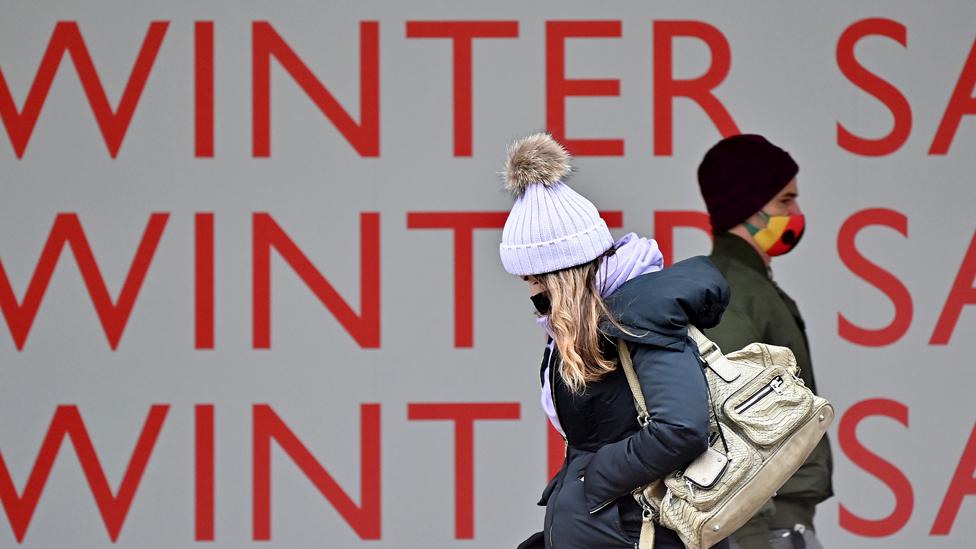Coronavirus: Cumbria lockdown 'inevitable' but 'light at end of the tunnel'
- Published

Cumbria's director of public health said all of the county had seen a rise in cases
The third national lockdown was "inevitable" but there is "light at the end of the tunnel", Cumbria's director of public health has said.
Colin Cox said a new, more transmissible variant of coronavirus was behind the county's rise in cases.
In the week to 31 December, Carlisle had almost 850 cases per 100,000 people, while Copeland's 213% increase was the largest in the country.
He said lockdown, external was an "unfortunate necessity" until people are vaccinated.

Mr Cox told BBC Radio Cumbria: "It's another dark day in this pandemic, however I think it has been inevitable for a long time.
"I entirely understand it just feels like this is Groundhog Day, however the prime minister was right when he said there is a very big difference this time, and that big difference is we now have two vaccines.
"That will get us through this. While it feels dark at the moment, that light at the end of the tunnel is absolutely still there.
"This is an unfortunate necessity to help get us through the difficult months of January and February. After that, light is definitely still there."

Analysis by BBC data journalist Rob England
As England enters its third national lockdown, the North West as a whole sits in the middle of the regions in terms of the number of coronavirus cases - but they are rising rapidly.
The North West recorded about 390 positive cases for every 100,000 people over the latest week, the fifth highest of England's nine regions.
However, in context locally, this was an increase of nearly three quarters on the previous week, the steepest rise across the country.

In Cumbria, Carlisle had the highest infection rate of about 850 cases per 100,000 people as of the 31 December - this has more than doubled in a week. South Lakeland saw the lowest rate of just under 240 cases per 100,000.
Of those taking lab-based coronavirus tests, Carlisle again had the highest percentage of positive results, at 20%. High positivity suggests more testing is needed to find undiagnosed cases and stop the virus spreading.
North Cumbria NHS Foundation Trust had 112 beds filled with coronavirus patients as of 30 December, a significant increase from 75 the previous week. Many of these extra cases appear to be new admissions.
Overall, there seems to be real contrast across Cumbria in terms of the impact of coronavirus, with some areas affected far more than others. It's unclear whether this situation will remain, but cases are rising across the board coupled with high positivity.

Mr Cox had previously called on the government to postpone the reopening of primary schools in the county amid fears the new variant meant "when you do get an outbreak, you get an awful lot more people affected".
He said this was borne out by outbreaks in workplaces, schools and the wider community, adding: "We are now starting to see the impact of Christmas mixing as well."
The national lockdown was announced shortly after bosses of hospitals in Carlisle and Whitehaven moved to their most serious alert level due to a "significant rise" in coronavirus cases.

Follow BBC North East & Cumbria on Twitter, external, Facebook, external and Instagram, external. Send your story ideas to northeastandcumbria@bbc.co.uk, external.
Related topics
- Published5 January 2021

- Published1 July 2022

- Published2 April
